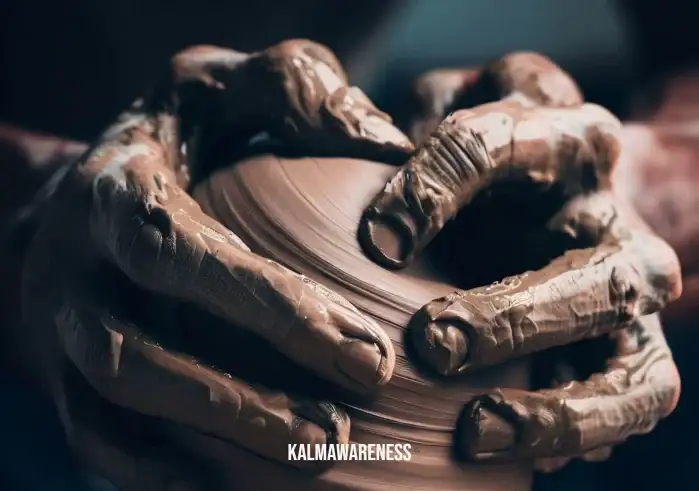The Most Patient Person: A Testament to Tolerance and Personal Growth
Patience is often considered one of the greatest virtues a person can possess. When we think of the most patient person, we envision someone with unwavering tolerance, deep understanding, and immense resilience. This article will take you on a journey through the significance of patience, its different types, and how one can develop it.
What Makes Someone Patient?
Patience is not just about the ability to wait, but the ability to maintain a positive attitude while waiting. This trait often stems from the person’s ability to remain calm and composed, even when faced with challenging situations. An apt analogy can be found in turtle meditation, which exemplifies slow and steady progress, demonstrating that patience is not inaction but an active state of serenity and acceptance.
“Patience is the companion of wisdom.” – Saint Augustine
One may ask, is patience a character trait? Indeed, it is one that can be cultivated over time. If you’re someone who often finds yourself thinking “my patience is running out,” you might want to explore how to become more patient. And you’re in the right place to learn more about that.
Understanding Different Types of Patience
Did you know that there are different types of patience? Understanding these can help us better appreciate the spectrum of patience and how it plays a role in various aspects of life.
- Interpersonal Patience: This type relates to how patient we are with others. Patience people exhibit this trait in their ability to tolerate inconveniences caused by others without becoming annoyed or upset.
- Life-hardship Patience: This is about how we handle life’s inevitable difficulties and setbacks. People who successfully navigate this domain can find the proverbial light even when things fall apart.
- Daily Hassles Patience: This involves dealing with minor daily irritations. Ever found yourself waiting for a package and feeling frustrated? This is where daily hassles patience comes into play.
While we each may exhibit different types of patience in various degrees, cultivating these traits can significantly enhance our ability to navigate life’s ups and downs.
In this first part of the article, we’ve started exploring the fascinating world of patience and its significance. Please continue to the next part where we will delve deeper into the role of patience in personal growth, and how techniques like meditation can enhance our patience and overall wellbeing.

The Journey to Becoming the Most Patient Person
While patience might come naturally to some, for many others, it is a quality that must be nurtured and cultivated. The journey to becoming the most patient person involves a conscious effort towards personal growth and resilience. Let’s take a look at the practices and strategies that can help one build patience.
Strategies for Enhancing Patience
- Meditation: The practice of meditation has been long associated with fostering patience. From the tranquility of the fly meditation to the persistence inherent in frustration meditation, various meditation techniques can help us remain calm and patient in the face of adversities.
- Mindfulness: By practicing mindfulness, we learn to live in the moment and appreciate it, thereby reducing our impatience with the future. Guided shower meditation is an excellent way to incorporate mindfulness into our daily routine.
- Coping with Distractions: Distractions can often lead to impatience. Learning to build a distraction for the stormtroopers can be an effective way to handle distractions and increase patience.
- Physical Fitness: A fit body can influence a fit mind. Engaging in regular physical activities can improve our endurance and tolerance, fostering patience. The warriors at ease training program exemplifies the relationship between physical fitness and patience.
- Understanding Stress: Understanding and managing stress is key to developing patience. The lessons from chapter 4, lesson 1: understanding stress provide valuable insights into this.
However, it’s essential to note that while these strategies can help, the journey towards becoming a patient individual is personal and unique to each individual.
“The two most powerful warriors are patience and time.” – Leo Tolstoy
| Practice | Related Resource | Purpose | Potential Outcome | Time Required |
|---|---|---|---|---|
| Meditation | Cold Meditation | Fostering calmness | Enhanced patience | 10-30 min/day |
| Physical Activity | Train out Pain | Building endurance | Improved tolerance | 30-60 min/day |
| Mindfulness | Teflon Mind | Staying present | Reduced impulsivity | 15-30 min/day |
| Stress Management | Managing Stress: Principles and Strategies for Health and Wellbeing | Handling stress | Increased resilience | Varies |
| Embracing Change | Getting Over it Present | Adapting to changes | Improved patience | Varies |
In this chapter, we delved into the practices that can guide one towards becoming the most patient person. We invite you to continue reading the next part, where we will explore the role of patience in achieving personal growth, along with the benefits of patience in our everyday life.

The Role of Patience in Personal Growth
Personal growth, or the process of self-improvement and development, is a journey. It requires time, resilience, and most importantly, patience. One cannot expect overnight transformation, and even the most patient person recognizes this.
Nelson Mandela once said, “It always seems impossible until it’s done.” This quote signifies the importance of patience and endurance in overcoming difficulties. One’s journey to personal growth might seem daunting at first. Still, by fostering patience, individuals can push through their limitations and strive towards their goals.
One effective way to cultivate patience is through guided meditation for courage. This practice helps us brave the storm and navigate through the challenges we encounter in our personal growth journey.
Moreover, patience plays a crucial role in managing expectations. As the saying goes, “Rome wasn’t built in a day”. This applies to personal growth as well. Our growth and development are a gradual process, much like what your patience may gradually do.
Just as important as the end goal is the journey we undertake. Adopting a patient outlook enables us to enjoy this journey, savoring the moments of growth and learning. As the proverb goes, “The journey of a thousand miles begins with a single step.” This embodies the essence of patience and perseverance. And what better way to appreciate the journey than to find the light in the darkness?
Additionally, having patience provides us with the ability to handle setbacks and failures with grace, a crucial aspect of personal growth. When things don’t go as planned, we often feel a sense of frustration and impatience. During such times, it can be helpful to ponder what to do when things fall apart.
As per the words of psychologist Carl Rogers, “The good life is a process, not a state of being. It is a direction, not a destination.” Such words resonate with the importance of patience in our journey of personal growth. Embracing this wisdom and practicing patience is what makes one the most patient person.
To conclude, we should remember the words of the Dalai Lama: “The goal is not to be better than the other man, but your previous self.” Patience fosters personal growth, allowing us to improve ourselves continually. With patience, we develop resilience, understand our shortcomings, and gradually evolve to be better versions of ourselves.
In the upcoming chapter, we will discuss how patience is not merely a character trait, but a lifestyle. We will explore is patience a character trait? and delve into the various types of patience to better understand the depth of this virtue. Join us in this exploration, as we continue to unravel the facets of becoming the most patient person.

Patience: A Lifestyle and Its Various Dimensions
A well-known saying posits that “Patience is not simply the ability to wait – it’s how we behave while we’re waiting.” This simple phrase embodies the essence of our subject: the most patient person. Patience, in its core, is not merely a character trait. It is a philosophy, a lifestyle that we choose to adopt.
A deep dive into the heart of patience reveals various dimensions to this virtue. It extends far beyond just waiting; it encompasses understanding, acceptance, tolerance, and resilience.
For instance, toxic positivity often prevents us from genuinely acknowledging our feelings and experiences. By embracing patience, we learn to understand and accept our emotions, a vital step towards resilience and personal growth.
Another important aspect of patience is riding the wave of life, meaning one should patiently endure life’s highs and lows, understanding that both are essential to personal growth.
Emphasizing the multidimensionality of patience, let’s explore the various types of patience using the table below:
| Type | Description | Benefits | Practice |
|---|---|---|---|
| Active Patience | Proactively waiting for outcomes while working towards goals. | Enhances determination and focus. | Cold Meditation |
| Passive Patience | Calmly enduring through tough times, without trying to change the situation. | Improves resilience and acceptance. | Train out Pain |
| Emotional Patience | Tolerating emotional distress without acting out. | Increases emotional intelligence. | Teflon Mind |
| Interpersonal Patience | Remaining calm and understanding in interactions with others. | Boosts relationship harmony. | Cut her some slack |
| Spiritual Patience | Maintaining faith and hope during challenging times. | Deepens spiritual connection and resilience. | Guided Shower Meditation |
In the words of Morgan Freeman, “I always tell my kids if you lay down, people will step over you. But if you keep scrambling, if you keep going, someone will always, always give you a hand. Always. But you gotta keep dancing, you gotta keep your feet moving.” This quote encapsulates the essence of active patience, one of the vital types of patience that aids in our journey of personal growth.
Moreover, as Steve Maraboli eloquently stated, “At the end of the day, let there be no excuses, no explanations, no regrets.” Embracing interpersonal patience can help us arrive at this point of understanding and acceptance, enriching our interactions and experiences with others.
In our upcoming chapter, we will explore the connection between patience and resilience. We’ll delve into the idea that your mind will give up before your body and explore how Warriors at ease training can instill patience and resilience within us. This will take us one step closer to understanding the journey of the most patient person. Join us in this exploration!

A Deep Dive into the Mind of the Most Patient Person
Exploring the concept of patience brings us closer to understanding the mind and lifestyle of the most patient person. This comprehension bridges the gap between mere knowledge and application, enabling us to integrate these principles into our lives.
Patience is more than a virtue; it’s a way of life that encourages resilience and fosters growth. As William Penn once said, “Patience and diligence, like faith, remove mountains.” Our exploration brings us closer to comprehending the depth of this statement.
Understanding through Patience
Underpinning the patience lifestyle is understanding. Understanding is the root of empathy, tolerance, and compassion, all vital elements that a patient person embodies. Our ability to understand ourselves and others can significantly impact our capacity to practice patience. Delving into the importance of understanding stress can provide a clearer picture of how understanding and patience are intertwined.
The Role of Tolerance
Just as a tree stands firm against a storm due to its deep roots, a patient person, deeply rooted in tolerance, can withstand the storms of life. Tolerance refers to the ability to endure difficult circumstances, opposing opinions, or even irritating behaviors, thus complementing patience. If you ever find yourself running out of patience, perhaps cultivating tolerance is the way forward.
The Strength in Endurance
Patient people understand that the road to success is often long and winding. Hence, they value endurance as an essential part of their journey. Be it running a marathon or weathering emotional turmoil, the ability to keep going on and on is often the difference between giving up and achieving our goals.
Patience: A Catalyst for Resilience
Resilience, the capacity to recover quickly from difficulties, is a trait often admired and sought after. It plays a significant role in the lives of the most patient people. It is no surprise then that activities like challenge meditation resilience are a common practice among them.
The Understanding-Patience-Resilience Loop
Understanding, tolerance, endurance, and resilience aren’t standalone concepts; they interconnect to create a virtuous cycle that enhances patience. An increased understanding promotes tolerance, which fosters endurance, ultimately leading to resilience. This resilience then boosts our understanding, and the cycle continues. This process is evident in the mindfulness teachings of the mindful brain Dan Siegel.
Cultivating patience is a journey, not a destination. The most patient person doesn’t reach a point of ‘enough’; instead, they continually strive to deepen their understanding, tolerance, endurance, and resilience. This continuous growth cycle, nurtured by patience, is what we’ll delve deeper into in our next chapter, building a distraction for the stormtroopers. We will explore various ways to enhance our patience and how this virtue can be a beacon of light, helping us find the light in the darkness. Join us as we continue on this enlightening journey!

Unleashing the Power of Patience: Final Reflections
In this final chapter, we take a moment to reflect and summarise our insights into the life of the most patient person. We’ve journeyed through understanding, tolerance, endurance, and resilience – all fundamental elements that coalesce into the virtue of patience. But our exploration doesn’t stop here. Rather, it’s a lifelong commitment to continual learning and growth.
Nurturing the Seed of Patience
As we’ve explored, patience isn’t a trait we’re born with; it’s a virtue we cultivate and nurture. Like a gardener patiently waiting for their seeds to sprout, we must also invest time and energy into nurturing our patience. Embracing the Fly Meditation can be a first step towards fostering a more patient outlook on life.
Patience and Personal Growth
Patience and personal growth go hand-in-hand. As we cultivate patience, we allow ourselves the time and space to evolve and grow as individuals. Embracing patience can help us overcome the inevitable challenges we encounter in life, giving us the courage to keep going on and on, even when times are tough.
The Most Patient Person and Peace
Patience brings a certain peace and tranquillity into our lives. This peace isn’t the absence of conflict or struggle but the ability to stay calm and composed amid the storms of life. As we’ve learned from the Teflon Mind, the mind of the most patient person remains unscathed, no matter what life throws at them.
In Conclusion
Our exploration of the most patient person may be drawing to a close, but our journey into cultivating patience is only just beginning. Remember, patience is a virtue that we can all cultivate, regardless of who we are or where we come from. As Sharon Salzberg, a renowned meditation teacher, once said, “Patience doesn’t mean passivity or resignation, but power. It’s an emotionally freeing practice of waiting, watching, and knowing when to act.”
As we conclude this exploration, let us continue to delve deeper into understanding patience and its numerous benefits in our everyday lives. Whether you’re interested in learning more about managing stress principles and strategies for health and wellbeing or exploring further into the concept of resilience, our wealth of resources is available to guide you.
Thank you for joining us on this enlightening journey into understanding the life of the most patient person. We hope that you will continue exploring, learning, and growing with us. Remember, the path to patience is a journey, not a destination. So, take a deep breath, keep moving forward, and let the adventure continue!





